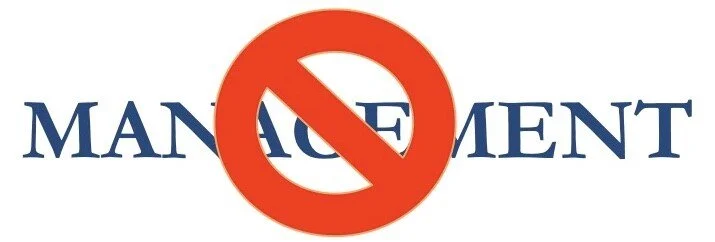What If We Got It All Wrong?
Ever the student of leadership, I regularly read books and articles that help me challenge my world view and my view of work and business.
Consistently, though, I seem to find works that lead me along a path of questioning what is it about leadership today that is required to be different from before?
What can we do differently now that enables leaders to lead thriving successful businesses and organizations through the 21st Century?
I began reading Daniel Pink's New York Times Bestseller, Drive, The Surprising Truth About What Motivates Us. In it, he lays out a model for how we think about engagement, motivation and leadership.
Pink proposes that we need "a new operating system to help ourselves, our companies and our world work a little better." And he cites recent studies by Gallup and McKinsey about the ever-increasing decline of employee engagement.
And as I write today, I am conscious of my need to not make this a book report. I will say that I am excited about the concepts he puts forth, and much of it resonates with me; definitely a book that has really got me thinking.
You likely have been worried about employee engagement and finding good talent to meet the needs of your growing business and the expectations of your customers and clients.
The world of work and business in the 21st Century demands that we find new ways to motivate, engage, and lead and grow the leaders of tomorrow. What happened and Why?
Has the age of Management Come to An End?
You and I learned about business and leading others using 20th Century methods that were developed in response to the Industrial Age with the advent of "scientific management".
These methods were designed to promote efficiency, improve performance and encourage excellence.
Later as we have seen, the world moved into the Information Age during the 20th Century with the advent of computers. Now we talk about Service Economy or Knowledge Age. But even that is shifting.
The predominant way to motivate until recently has been the "if you do this, then you'll get that" method or carrot and stick approach. Born of a less complex world, reward and punishment seemed to be working for nearly 100 years.
Now we are in the midst of moving beyond these ways to describe our world as it becomes increasingly complex and filled with paradox.
More and more we see (1) AI taking over repeatable, routine and mundane tasks and (2) the offshoring of some of this work as well.
Nowadays we expect our employees to have critical thinking skills, apply creative thinking to solve complex problems and develop their skills and grow as the company or organization grows.
Maybe We're Asking the Wrong Questions?
Instead of asking 'Why', maybe we should be asking 'How'. How can we motivate, cultivate and lead in this world of complexity and paradox?
Pink describes what he calls Type I Behavior, which is driven by intrinsic satisfaction rather than extrinsic rewards. The Type I's thrive on freedom, challenge and purpose.
Make no mistake, Type I's do not disdain higher pay or recognition and will accept them if offered. If, however, compensation isn't equitable, motivation will crater. They see recognition as feedback but don't seek recognition as a reward.
Type I behavior is built upon three elements: Autonomy, Mastery and Purpose.
Autonomy is not devoid of accountability. Type I's want autonomy to create how their work will be done and where, AND expect to be held accountable for results. The outcomes, the results, matter more than how to get there (ethically of course).
Mastery is the desire to get better and better at something that matters. It's a mindset. Achieving Mastery is elusive as you never quite reach perfection.
It's in our DNA to seek Purpose, to be a part of something bigger than ourselves. And the past few years, more and more we see companies espouse the importance of purpose. Is it ornamental, a nice-to-have, or is it truly ingrained in their culture?
You've heard of TOMS shoes. For every shoe sold, they donate one pair to a child in a developing country. It's not purpose at the sake of profits. It's just the opposite. TOMS is a model of Maximizing Purpose AND Profit.
Final Thoughts
The past three years or so we have seen a sea change in how work gets done. Technology has enabled us to adapt, pivot and soldier on.
What we expect of our employees has been steadily expanding for decades, moving away from the mundane repeatable to more value-added critical and creative thinking and problem solving.
The key word here is flexibility. You and I need to be flexible in our thinking about motivation and what we expect from our employees.
Money and rewards matter but serve as tangible feedback from doing good work and not the motivation for it.
If you can align Purpose, Vision, Culture based on a culture of trust, you will attract the right talent who will join you. And they will be highly engaged because they believe in what you believe in.
Until next time!

